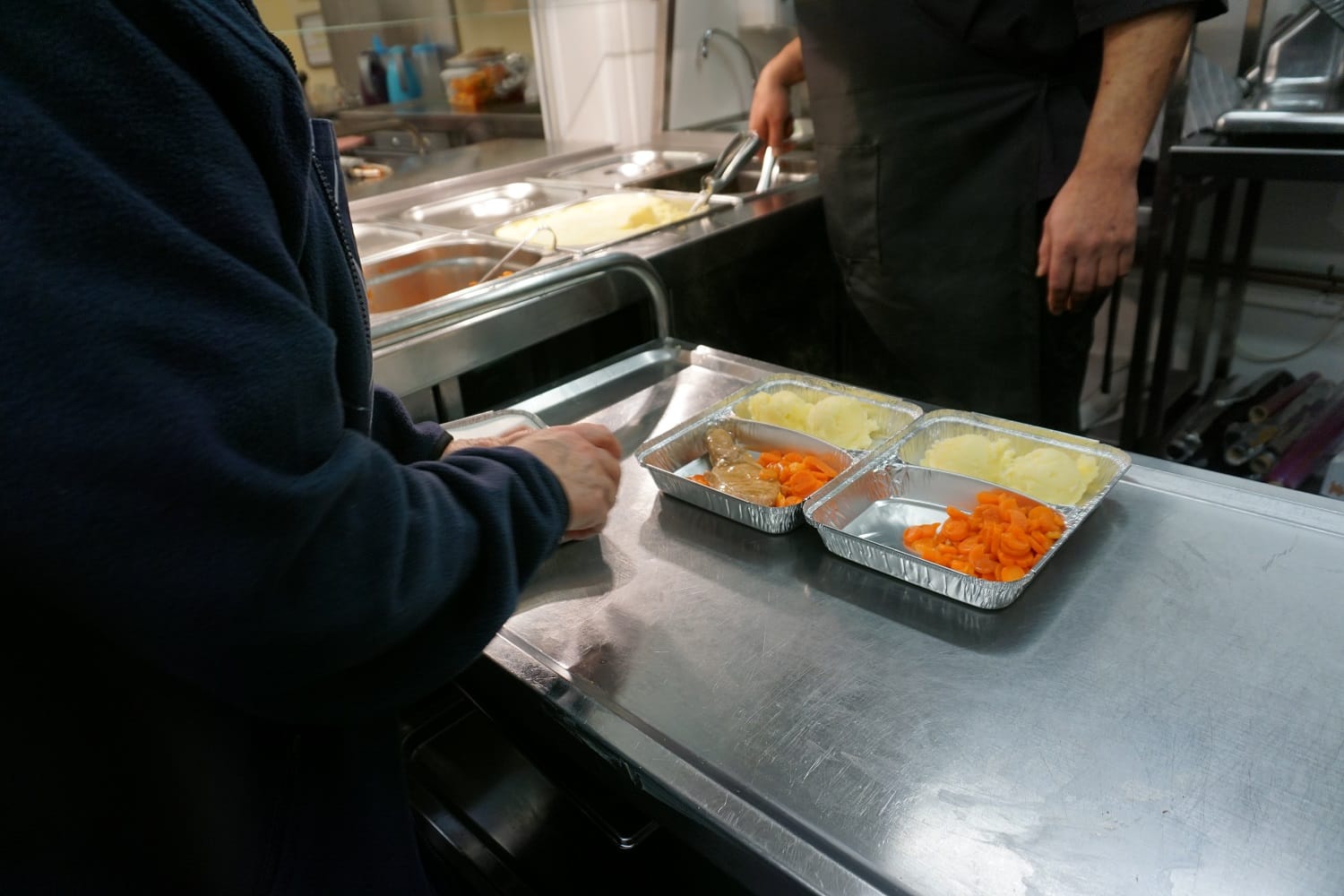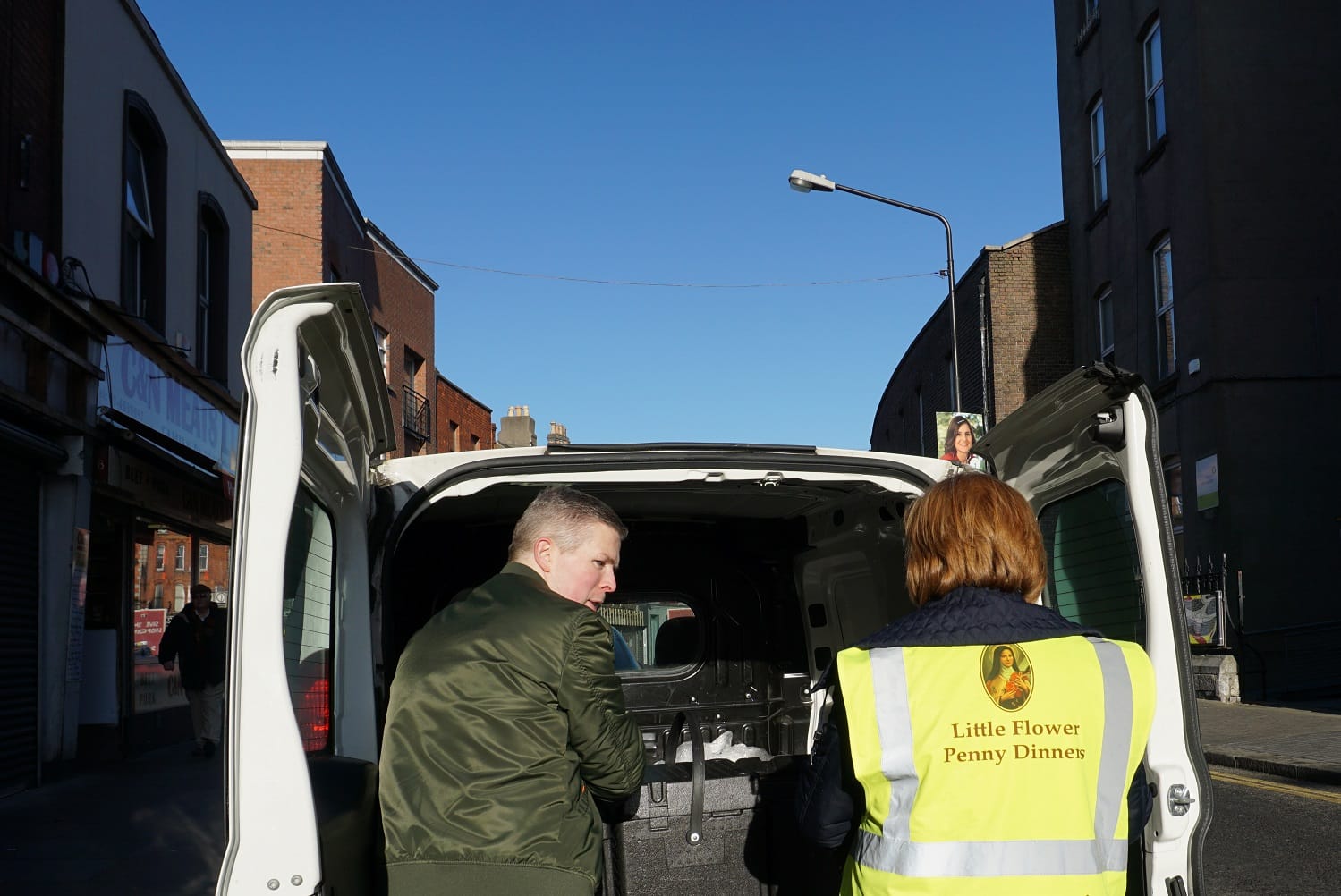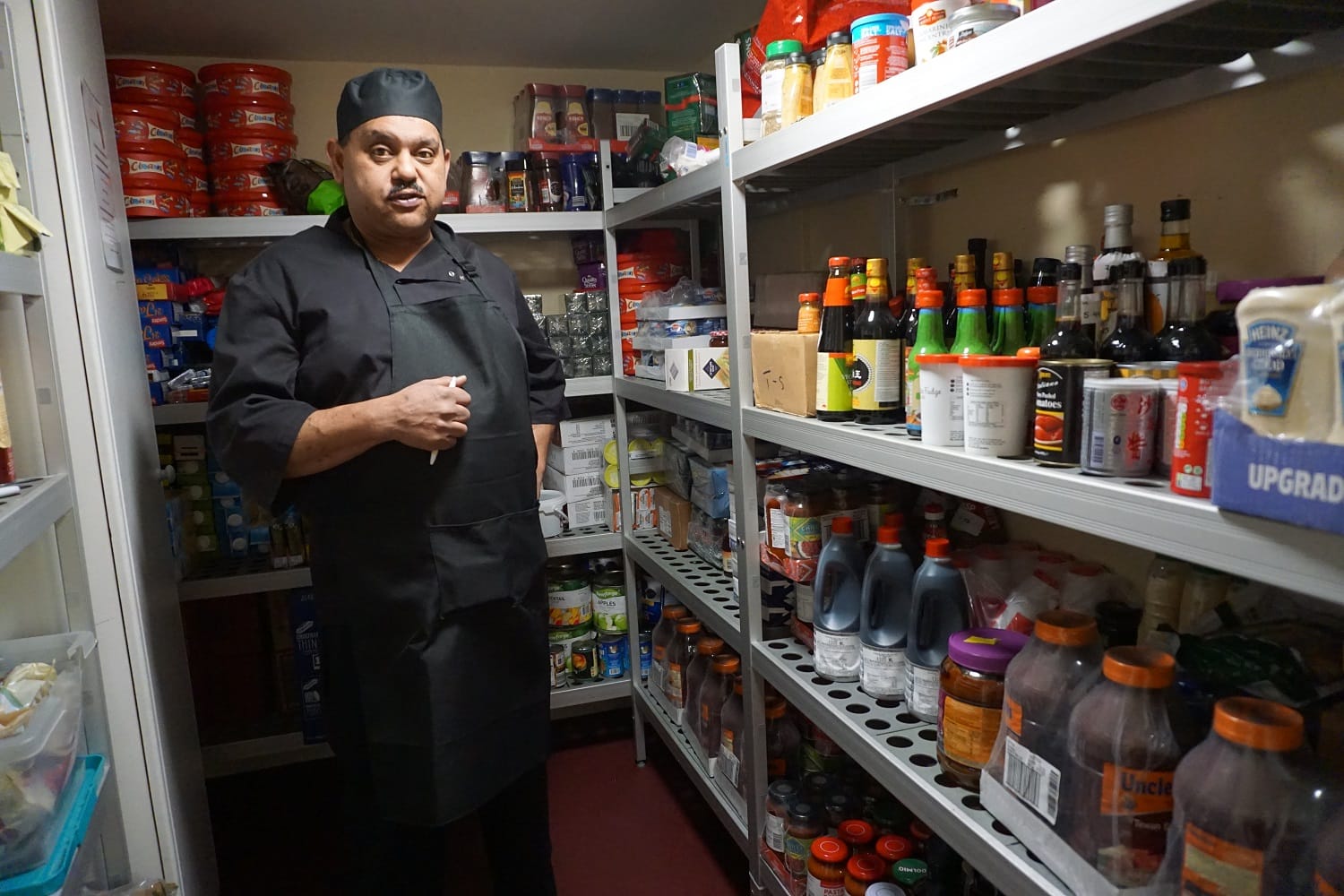What’s the best way to tell area residents about plans for a new asylum shelter nearby?
The government should tell communities directly about plans for new asylum shelters, some activists and politicians say.
“I’ve worked all over, every aspect of catering,” says long-time Chef Ray Juthan. “But I’ve never gotten as much satisfaction as I have now.”

It’s only a little after 10am, and Ray Juthan has been at work for going on four hours. He comes in early, before everyone else, so he can think.
Now, at the tail end of the breakfast service, he sits at a table towards the back of the main dining room, next to his office. Inside the small office is the sound system that pipes Sunshine 106.8 through speakers all around the building, all day.
There used to be different radios going in different rooms, until Juthan decided to consolidate. “It took a while, but they got used to it,” he says, of the staff.
That’s one of the more minor changes Juthan has made in his five years as head chef and operations manager at The Little Flower Penny Dinners on Meath Street. Founded in 1912, it’s been serving food to those in need in The Liberties for a long time.
The people running it have been changing with the times, ever evolving, to make sure it stays going long into the future.
The Little Flower serves 250 meals a day, excluding breakfast and the three rounds of meals-on-wheels deliveries everyday.
Breakfast consists of toasted sandwiches, boiled eggs, that kind of thing. It’s free to anyone who needs it.
The main dining room is painted cream with matching tables and chairs, and it’s bright, with a row of skylights overhead.
This is the dining room that homeless customers use. For them, the three-course lunch costs €0.25.
“It’s not a fixed charge – if you have it, you have it. If you don’t, we’ll say give it to us tomorrow or next week,” Juthan says, playing with a ring of keys.
Juthan has a friendly face, with just a hint of white in his moustache. He’s dressed all in black – from his chef’s hat down to his crocs.
Nearby, a woman in a hair net pulls out chairs to hoover under the tables. A man reorganises things in the tea-and-coffee kitchen before lunch, and a few staff members sort through some donated bags of clothes. There’s a faint smell of bleach in the air.
Around 40 percent of the people who The Little Flower feeds are homeless, Juthan says. The others are either elderly people who can’t cook for themselves, or people who can’t afford to eat. Occasionally, children come in for breakfast before school.
At the other side of the kitchen, in the smaller “seniors” dining room, the meals cost €3.
A few men sit at tables, but mostly the breakfast crowd is gone.
Every minute or two, someone comes up to Juthan to ask a question, or talk about something.
“This is my life. I’ve threatened to change my name a few times but it hasn’t worked … I can’t even find a corner to hide in, you know the way?” Juthan takes off his hat and rubs his eyes, smiling.
“If you asked me 10 years ago did I see myself doing something like this, I would have thought, ‘Are you off your head or what? No chance,’” Juthan says. He’s had a varied career as a banqueting chef.
“If you look at my CV, it’s mental. I’ve worked all over every aspect of catering: airline catering, hospital catering, cruise ships,” he says.
“But I’ve never gotten as much satisfaction as I have now. Maybe it’s an age thing. I don’t know.”
Originally, Juthan signed up for eight weeks of consultancy work, to design the new industrial kitchen and decorate. “They wouldn’t let me go,” he says.
Then, “We started changing a hell of a lot of stuff.”
When Juthan got here, the meals were prepared using domestic cookers. Now the stainless-steel kitchen gleams. There are convection ovens, chill blasters, industrial dishwashers, and a walk-in freezer downstairs.
He also shook up the menu. Long gone are the days of stew and mash. Now they do Tex Mex. Curries. Chinese dishes.
On the menu today: tandoori pork chops or shepherd’s pie, with mash and veg. Tomorrow? Spare ribs.
“We get kind of fancy like that with our meals,” he says.
They do chicken curry and rice religiously on a Friday, he says. “If we don’t put on a chicken curry and rice here on a Friday, there would be slaughter. We might as well barricade ourselves in behind the doors, you know?”

Juthan’s accent is hard to place. There’s Dublin in it, but something else, too.
He grew up in South Africa, in a family of Indian descent. He ended up in Dublin in much the same way he ended up at The Little Flower – by accident.
He left South Africa during apartheid. “We were students at the time, and we were getting sucked into the battle.”
Juthan says he lost a lot of friends. “Never found them again, things like that. Things were a bit tough.”
He was able to get a passport and stopped off in Dublin to visit an uncle en route to other relations in Canada. “But I never made it.” He was 17.
He went a bit crazy with the freedom at first, he says.
He could go anywhere, do anything. Nobody to answer to. No time limits or restrictions. “You could go to any cinema you wanted, any beach you wanted,” he says.
This was a big change from South Africa, where there were curfews and restrictions on where people could be, based on their colour.
Originally he wanted to be a doctor, like his uncle, but his parents couldn’t afford the international student fees. So he became a chef.
“Every day I come into work, I really feel that I’m doing something extremely worthwhile,” says Ruth Harkness, the general manager at The Little Flower.
She’s up in her office on the first floor, and her door is only closed today because of the draft, she says.
She likes to chat to everybody who comes in, she says. “There’s always a bit of banter. They love to tell me how inferior the Tyrone GAA team is to Dublin,” she says, with a laugh.
Originally from Tyrone, Harkness has worked in the not-for-profit sector before. “This is different,” she says.
Part of her job is to raise enough funds to keep the place going. She also talks about updating the website and branding, and starting a social-media campaign.
“We’ve been here so long, since 1912, that people think we’ll just go on forever,” Harkness says. “It gets a bit scary at times, financially.”
They get a portion of the running costs for their meals-on-wheels programme from the HSE.
And programmes like FoodCloud and Tesco Food Rescue help. Juthan has arrangements with a local butcher and bakery too.
But everything else is funded through donations.

“Everything we get is a big help,” Harkness says. But it does “get quite hairy” at times.
“It all comes together in this sort of weird way,” she says. “At times it’s been very close, but something’s always come in at the end to keep us going.”
It’s a sentiment that lots of people involved with The Little Flower seem to echo, including Sister Brigid Phelan, who used to be the manager here.
Originally from County Kilkenny, she lives nearby, in the Oliver Bond flats. She joined the Presentation Sisters in 1950, when she was 18, and worked for years as a nurse and primary-school teacher.
She started at The Little Flower at the end of 1991. “It was a very small outfit at the time and in disrepair,” she says. “I did every task in the house really, from cooking, to cleaning, to fundraising.”
There was only one employee back then. Today, there are 10 full-time staff, four part-time staff, and around 40 regular volunteers.
This afternoon, she’s downstairs, in the seniors’ dining room. She’s started coming here everyday for her dinner.
“Gradually, I’m in need of care now myself,” she says. At 80, and with arthritis, Sister Brigid gets around using a set of metal crutches.
She’s still a board member – there’s the monthly meeting later today. And she still “dabbles” at the parish across the road.
But, she says, she’s a social being, and going to The Little Flower and talking to the people there keeps her going.
Juthan has only four rules for customers here.
“We don’t take bullying; we don’t tolerate racism; no drug use on the premises; and no alcohol abuse on the premises,” he says.
They’ve had to deal with problems, mostly stemming from substance abuse.
“We don’t have security roaming around. We kind of take a different approach,” says Juthan, who also handles matters of diplomacy in the dining room. “If you have a problem, we can talk about it.”

Later in the afternoons, The Little Flower acts as a kind of community centre. There are AA meetings, Al Anon, a ladies’ club on Tuesdays, and bingo on Thursdays and Fridays, among other things.
Lunch is over in a flash.
“It’s a big rush. Everyone hits you at 12pm and once they eat they kind of move on,” Juthan says.
With the main work for the day winding down, Juthan pulls a battered yellow tin out of his pocket, opens it, and fishes a filter out of the loose tobacco. Standing behind one of the doors onto Meath Street, he rolls a cigarette.
He opens the door and stands outside on a step next to the footpath. A man passing asks what’s on the menu on thursday.
“Loads of apples,” Juthan tells him, smiling, between puffs.
“He hates apples,” Juthan says.
He’s running down tomorrow’s menu out loud. Tomorrow is coddle, which everyone loves, he says.
“I don’t know how they can eat that. Boiled sausages!”
Sign up here to get our free email newsletter each Wednesday, with headlines from the week’s online edition, updates from inside the newsroom, and more. It’s a little reminder when we have a new edition out, and a way for you to stay in touch with what we’re doing without having to check social media.
Get our latest headlines in one of them, and recommendations for things to do in Dublin in the other.